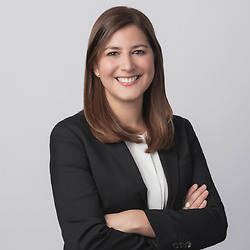Delaware Federal Court Holds Contract Exclusion Bars Coverage for Claim Against Federal Grant Awardee for Disallowed Costs
Megan Hovious, a Law Clerk at Wiley Rein LLP, authored this post. Edited by Margaret T. Karchmer.
The United States District Court for the District of Delaware, applying Delaware law, has held that no coverage exists under a directors and officers liability policy for a claim arising from disallowed federal grant expenditures because the claim fell within the policy’s contract exclusion. Southern African Enter. Dev. Fund v. Ironshore Specialty Ins. Co., 2024 WL 4145024 (D. Del. Sept. 11, 2024). The court further found that whether the insurer violated the implied covenant of good faith and fair dealing when it failed to respond to the insured’s claim for more than 10 months was a fact issue for trial.
The insured, a non-profit entity, received an open-ended, multi-million-dollar federal grant award through the United States Agency for International Development (“USAID”) to invest in indigenous enterprises in southern Africa. The grant required the insured to adhere to certain cost principles, use grant proceeds only in furtherance of program objectives, and undergo routine financial audits. It also required the insured to maintain and follow internal controls that would ensure sufficient oversight of program funds. In 2017, following a routine financial audit, an investigation by USAID’s Office of the Inspector General, and an administrative appeal, USAID issued a final administrative decision requiring the insured to repay more than $2.3 million in grant funds it had received for disallowed expenditures.
The insured sought coverage for USAID’s claim to those funds under its directors and officers liability policy. The insurer denied coverage based on a contract exclusion applicable to any claim “arising out of, based upon, or attributable to” any contractual liability of the insured “under any express contract or agreement.”
In deciding the parties’ motions for summary judgment in the ensuing coverage action, the court agreed with the insurer that the policy’s contract exclusion barred coverage for USAID’s claim. Looking to the common usage of the contract exclusion’s language, the court concluded that USAID’s claim arose out of the grant agreement between USAID and the insured because it had a meaningful factual linkage to the grant agreement. For one, the routine financial audit, where the disallowed costs were first discovered, was triggered by the terms of the grant agreement. Additionally, USAID expressly cited to the terms of the grant agreement in identifying and calculating the disallowed expenditures. The court rejected the insured’s argument that there was no meaningful connection between USAID’s claim and the grant agreement because the gravamen of USAID’s claim was that the insured had violated its fiduciary duties by failing to adequately oversee grant funds, finding that those duties originated in the grant agreement.


